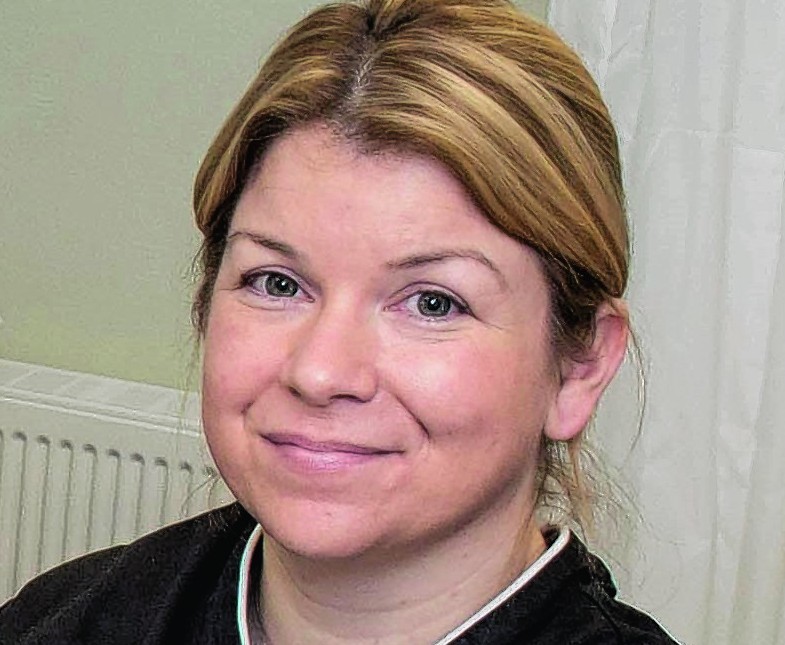Fans travelling to the FIFA World Cup in Brazil have been urged to worry about their personal health and safety – some of the biggest risks they face come from common insect bites, poor sanitation and person-to-person contact
Pauline Ganley, travel health manager for Aberdeen-based International Medical Management, says fans heading to the World Cup must prepare not only for the euphoria of being part of football’s biggest event, but also against diseases. Pauline gives us her top tips for football fans and tourists alike planning a trip to the South American country.
VACCINATIONS
People travelling internationally should always consult a travel health professional to establish which inoculations are required for their destination.
Brazil’s complex mix of rainforest and major city topography, with a high average temperature, mean the country is a hotbed for transmittable infection and disease. Travellers should consider vaccinations such as hepatitis A, influenza, diphtheria, tetanus, yellow fever, hepatitis B, rabies and typhoid.
Each vaccine has a different life period, for example tetanus, polio and diphtheria will last up to 10 years, whereas typhoid and hepatitis A do not last as long.
The World Cup is being held in 12 locations – including Rio, Brasilia, Sao Paulo, Manaus, Natal and Salvador – meaning travellers need to check which inoculations are advised based on the area they are travelling to.
TABLETS, INSECT REPELLENTS AND PERSONAL HYGIENE
As well as preparing for preventable diseases with vaccinations there are also non-vaccine controls available for malaria, dengue fever and traveller’s diarrhoea.
The risk of developing malaria can be reduced by taking prescription medication. Dengue fever, carried by mosquitoes, is preventable through the use of recommended insect repellents and traveller’s diarrhoea can be avoided by adopting good hygiene methods and avoiding high risk food and drinks.
MEDICINE (PRESCRIPTION AND GP LETTER)
If you are travelling with prescription medicine, make sure you have your prescription with you, along with a letter from your GP. Make sure to carry it in your hand luggage. Buying medication overseas is a high risk activity, as you cannot be sure what you are buying is appropriate for your condition, or even counterfeit.
EAR PROTECTION
Attending football games at home or abroad involves exposure to some of the most raucous crowd noise anywhere in the world – at the risk of damage to your ear drums. It is important for people to consider wearing ear protection when in a stadium to prevent problems such as tinnitus.
SUN AND HEAT
Brazil is one of the world’s hottest destinations so it is important to remember to protect yourself from the sun and be prepared for the risks of heat exposure. Appropriate sun creams and screens are must-haves, and wearing the right clothing can help to prevent painful and dangerous sunburn. Something a lot of people don’t consider is heat exposure, so ensure you drink plenty of fluids to stay hydrated. These measures can prevent sunstroke, sun burn, heat rash, skin cancer and dehydration.
BLOOD-BORNE VIRUSES AND SEXUALLY TRANSMITTED DISEASES
When on holiday, many people consider getting a tattoo as a memento of their trip. However, you should always consider how safe the procedure will be – the use of un-sanitised needles can lead to life-threatening diseases such as hepatitis, Aids and septicaemia.
STDs are also something men and women should bear in mind if they are involved in any kind of physical contact, or are inclined to have intimate relations, with people they don’t know. Using protection can prevent serious infections and diseases.
FIRST AID KIT
Having a first aid kit handy when abroad is a must. I would recommend it contain some of the following for minor ailments: throat lozenges, paracetamol, ear plugs, blister plasters, athlete’s foot cream/powder, electrolyte sachets, anti diarrhoeals and alcohol hand-gel.
ANIMAL BITES
Avoid contact with dogs and cats especially. Seek immediate medical attention if scratched or bitten, or if an open wound is licked. If you suffer an animal bite, clean the wound with high alcohol concentration fluid, encourage it to bleed, and seek medical help immediately.
SUBSTANCE ABUSE AND ANTISOCIAL BEHAVIOUR
Drinking to excess is generally not a good idea – in an unfamiliar location, the risks rise significantly. You may find it difficult to find your way home, get into difficulties and put your own life at risk. You should consider the customs of Brazil, or any country you visit, as behaviour which is acceptable at home may cause offence or be considered illegal in another location.
PERSONAL SAFETY
As mentioned earlier, looking after yourself abroad is about more than just preventive medication, it’s also incredibly important to take precautions when crossing the road, wandering into unknown areas and meeting people you don’t know.
The threat of mugging, rape and assault are all considerations for tourists, who are often considered an easy target. Travellers should avoid wearing expensive jewellery, clothing and using electronic devices in public as these can be a draw for thieves.
SEEK HELP
Ensuring you seek medical advice in any situation, while away or on your return home, is vital – including situations where you have what may seem like a minor complaint such as a cough, rash, fever, persistent joint or muscle pain.
In some circumstances it may be difficult to adopt all of the mentioned health and safety precautions but adherence to most of them and a bit of common sense will help to ensure you get the most from your trip to Brazil.
What’s safe to eat and drink?
Eat
Food that is thoroughly cooked and served hot
Fruits and vegetables you have washed in clean water or peeled yourself
Pasteurised dairy products
Don’t eat
Food served at room temperature
Food from street vendors
Raw or undercooked meat or fish
Unwashed or unpeeled fruits and vegetables
Beverages
If drinking fizzy/gaseous beverages (beer, coke and lager) don’t drink directly from the bottle or can as storage of these products may be in unclean environments

